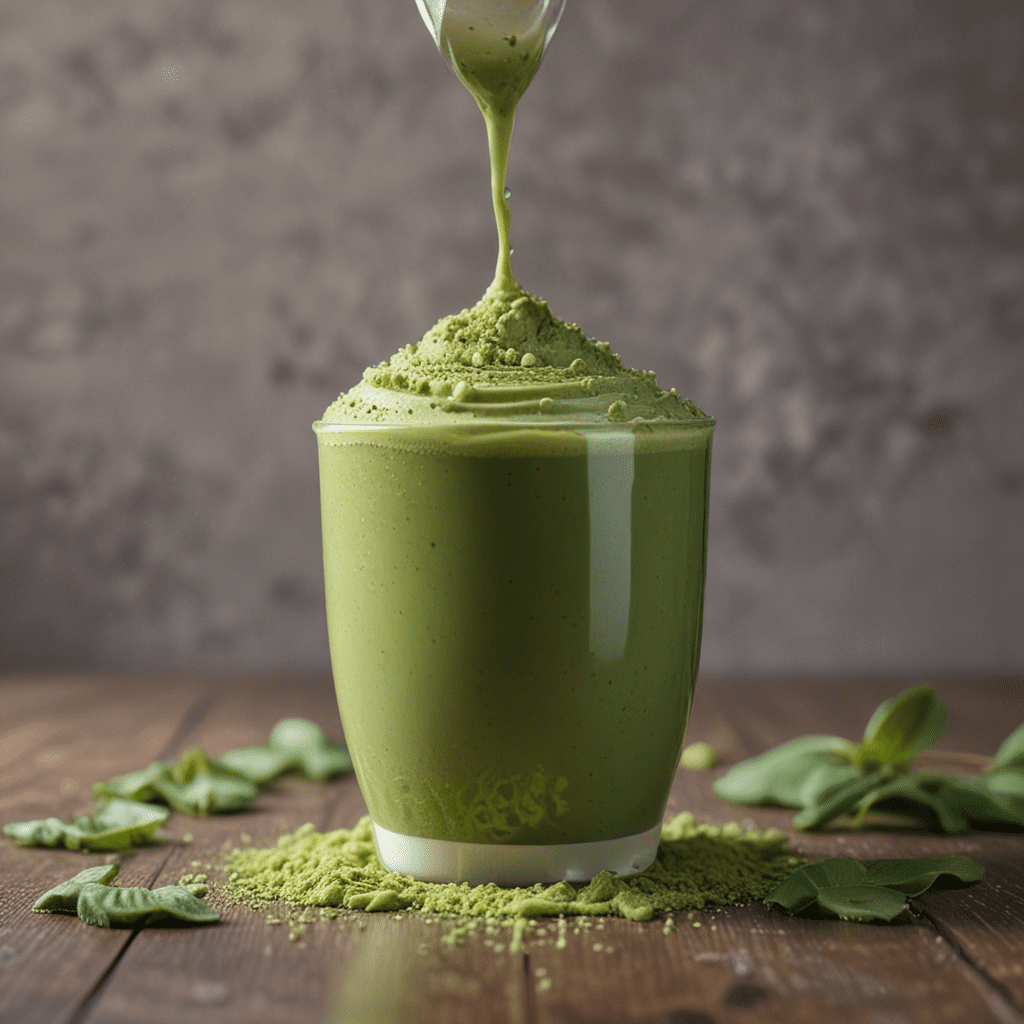
The Science Behind Matcha’s Health Benefits
Introduction
Matcha, a vibrant green tea powder, has become increasingly popular due to its purported health benefits. Its rich nutritional profile and unique properties make it a promising candidate for enhancing overall well-being. This article will delve into the scientific evidence supporting the health claims surrounding matcha, exploring its nutritional content, effects on metabolism, and various other health benefits.
Nutritional Content of Matcha
Matcha boasts an exceptional nutritional profile, packed with antioxidants, vitamins, and minerals. Its vibrant green color is attributed to its high concentration of chlorophyll, a powerful antioxidant that helps protect cells from damage. Matcha is also an excellent source of catechins, particularly epigallocatechin gallate (EGCG), a potent antioxidant with numerous health-promoting effects. Additionally, it contains vitamins A, C, E, and K, as well as minerals such as potassium, calcium, and iron.
Matcha’s Effects on Metabolism
Studies have shown that matcha can have a significant impact on metabolism. Its high catechin content has been linked to increased calorie expenditure and fat oxidation. EGCG, in particular, has been found to boost the body's production of heat, leading to a faster metabolic rate and increased calorie burn. This makes matcha a potential aid in weight management and obesity prevention.
6. Neuroprotective Effects
Matcha's catechins possess neuroprotective properties, shielding the brain from oxidative stress and cognitive decline. EGCG has been shown to protect neurons from damage caused by free radicals, reducing the risk of neurodegenerative disorders such as Alzheimer's and Parkinson's disease. Moreover, studies have linked matcha consumption to improved cognitive function, including enhanced memory, attention, and reaction time.
7. Cancer Prevention Potential
Matcha's antioxidants, particularly EGCG, have been investigated for their potential role in cancer prevention. Research suggests that EGCG may inhibit tumor growth, angiogenesis (blood vessel formation in tumors), and metastasis. Studies have shown promising results in reducing the risk of certain types of cancer, such as prostate, lung, and breast cancer. However, more extensive research is needed to fully understand matcha's role in cancer prevention.
8. Detoxification and Skin Health
Matcha's chlorophyll and antioxidants contribute to its detoxifying properties. Chlorophyll helps bind to toxins and heavy metals in the digestive tract, aiding in their elimination. Matcha's antioxidants also support liver function, enhancing the body's ability to detoxify harmful substances. Additionally, matcha's catechins have anti-aging effects on the skin. They protect against UV damage, reduce inflammation, and promote collagen production, resulting in a more youthful and radiant complexion.
9. Safety Considerations
While matcha is generally safe for consumption, certain considerations should be noted. It may interact with certain medications, such as blood thinners and antidepressants. Individuals with specific health conditions should consult a healthcare professional before consuming matcha regularly. Additionally, some matcha products may contain elevated levels of heavy metals, such as lead and mercury. It is recommended to purchase matcha from reputable sources that provide testing results for heavy metal content.
10. Conclusion
Matcha's impressive health benefits stem from its rich nutritional profile and powerful antioxidants. Its ability to boost metabolism, improve cardiovascular health, reduce inflammation, protect the brain and nervous system, and contribute to cancer prevention makes it a valuable addition to a healthy diet. Matcha's detoxification and skin-enhancing properties further enhance its appeal as a holistic health beverage. With its unique blend of nutrients and health-promoting compounds, matcha continues to gain recognition as a potent ally in achieving overall well-being.
FAQs
Is matcha safe for daily consumption?
Yes, matcha is generally safe for daily consumption in moderate amounts. It is recommended to adhere to the recommended serving size and consult a healthcare professional if you have any underlying health conditions or are taking medications.
How much matcha should I drink daily?
The recommended daily intake of matcha varies depending on individual health needs and preferences. Generally, 1-2 cups of matcha tea per day are considered safe and beneficial.
Can matcha help me lose weight?
Matcha may support weight loss efforts due to its ability to increase calorie expenditure and promote fat oxidation. However, incorporating matcha into a balanced diet and exercise plan is essential for sustainable weight management.
Where can I find high-quality matcha?
Look for matcha products from reputable sources that provide third-party testing results for heavy metal content. Certified organic matcha ensures adherence to strict farming practices and minimal exposure to pesticides and chemicals.


